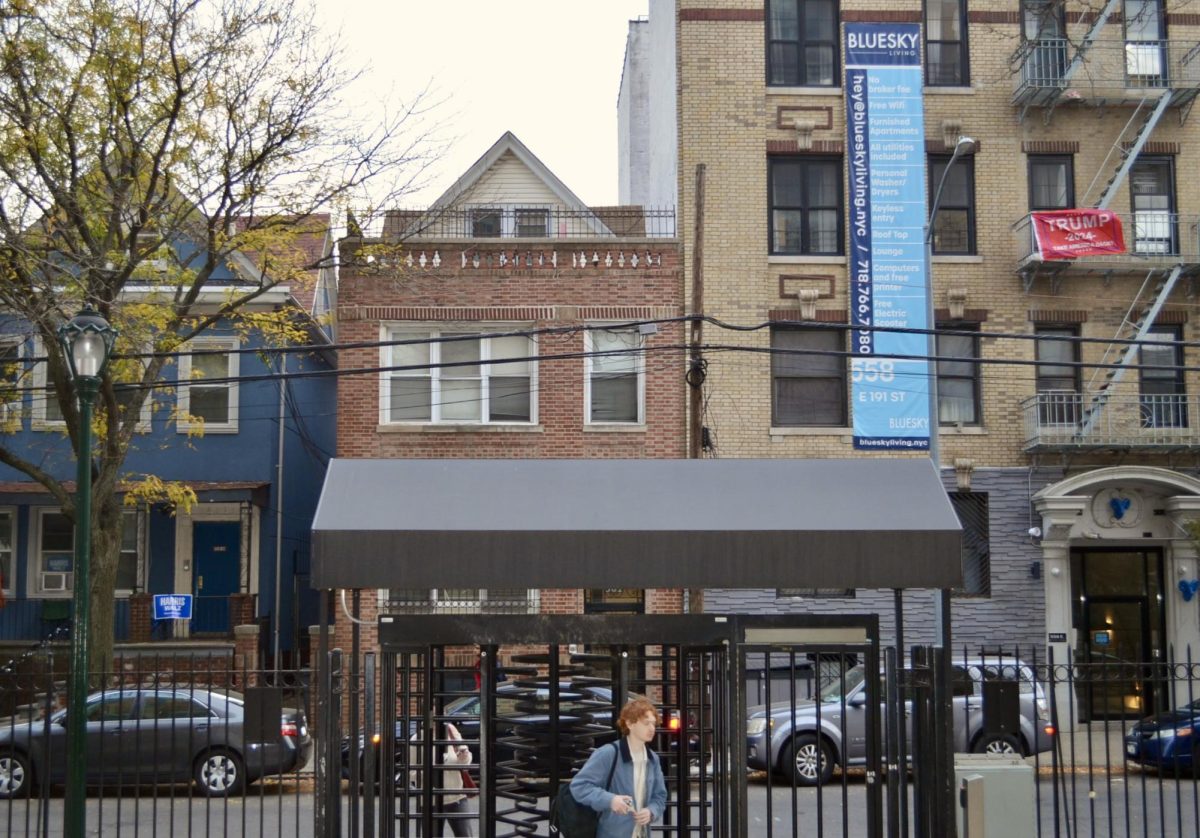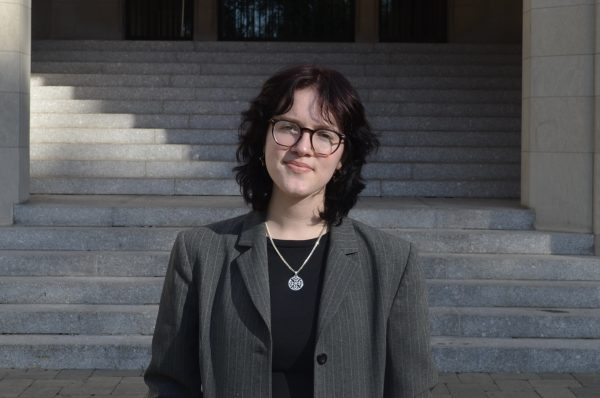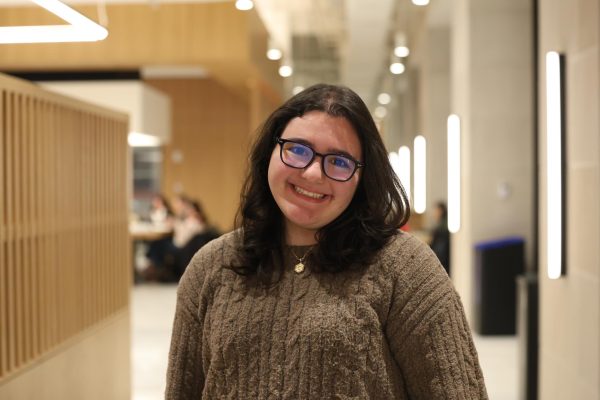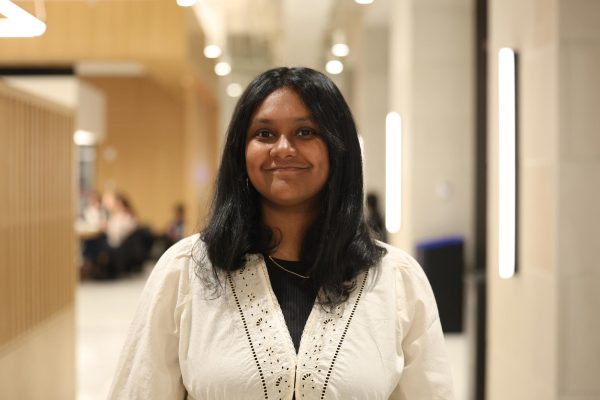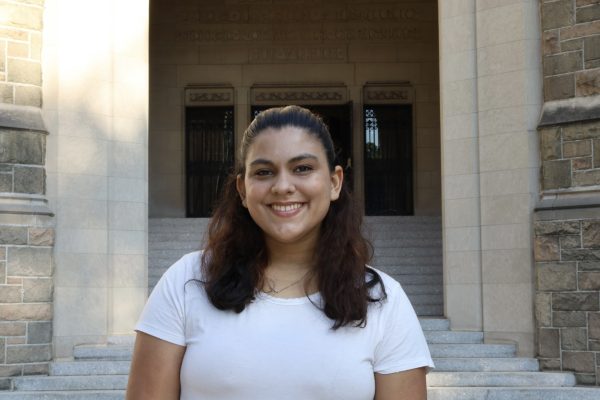As polls close across the country, Americans wait in anticipation of the news of who the next president of the United States will be. In 2020, the election between former President Donald Trump and President Joe Biden was called on Nov. 7, five days after Election Day, due to how close the candidates were in the polls. The 2024 election between Trump and Vice President Kamala Harris is expected to be similarly close, with the potential that a winner be disclosed days after the election itself.
On Election Day, The Fordham Ram reached out to students, alumni and community members on their feelings and engagement with the election. The Fordham Ram conducted in-person and digital outreach to source opinions. If you feel that your viewpoint or community was not adequately represented, please contact the news team at [email protected] and this article will be edited accordingly.
Fordham canceled all classes for the day to give students the opportunity to vote. Many Fordham students who commute to campus or live nearby traveled home on Nov. 5 to cast their ballots at their local polling place. “I voted today at the Grace H. Dodge Vocational High School, the designated voting location for students who live on campus,” said Stuart Cremer, FCRH ’26.
Students expressed an array of emotions surrounding the political environment in the country at its current state. Bella Magnotta, FCRH ’27, said, “I think I will be having a constant panic attack until it’s announced, personally.” With the uncertainty of seven swing states ultimately being the deciding factor in this year’s presidential race, students living in these swing states felt a larger pressure to cast their votes.
“I am in one of the swing states, and I know for a fact that my vote is significantly more important than almost any other voters’ at Fordham,” said Pierce Liestenfeltz, FCRH ’27. “I am grateful that I have greater power to choose the outcome I see fit for the country. Arizona had a historic role in the outcome of the last election, and I hope the trend continues.”
Some voters are concerned about the safety of the country following the election, considering events such as the Jan. 6 insurrection that occurred following the 2020 election. “I am worried about the security of the country and the capitol with the election possibly being so close,” said Camille Morvant, FCRH ’27. “I do not want a repeat of January 6, 2021. If Trump loses, I believe that Trump supporters could riot and initiate another insurrection.”
Harris’ campaign team specifically has targeted Gen Z with memes, edits and niche social media posts to attempt to gain the votes of younger Americans. “Based on what I’ve seen on social media, it seems that Gen Z is highly motivated to vote,” said Stephanie Lane, FCRH ’25. “Personally, I’ve always wanted to vote and saw the importance of it so I didn’t let others impact my decision to do so. I can see how others who may not be as politically involved would feel motivated to vote because of how many young voters are posting about it. There also seems to be a lot of information about the voting process and the various methods in order to be accessible for many people.”
Many students who do not live in New York and were unable to travel home to cast their ballots opted to vote via mail. “I voted by mail for Pennsylvania,” said Abby Lopez, FCRH ’27. “Today, I’m turning off my phone and locking in on chemistry as much as I can. I fear the results.”
Some students like Anna Gehres, FCRH ’26, had to vote while abroad. “Studying abroad right now is actually so hard not knowing hope the wider American consensus feels other than through polls,” she said. “I won’t know until I literally wake up tomorrow at 8 a.m. and not even then. I sent my ballot in mid October through email and then my physical materials the same day.”
A mile away from campus on Bainbridge Avenue poll workers had been outside since 7 a.m. directing people to the polling location in an apartment building. New York Sen. Gustavo Rivera came to the location to talk to voters about the presidential election as well as local propositions.
“My goal coming here tonight is the same as the few stops that we’ve had already today, which is to talk to voters to remind them to flip the ballot over and, hopefully, vote for not only Kamala Harris for president but also to do so on the Working Families party line,” Rivera said. “I want them to keep their line, and every vote counts towards that, but I [want too] remind them to flip the ballot over, since the propositions are incredibly important.”
Out-of-state students were not the only ones who had issues, as in-person voters had similar struggles.
Jones, age 60, tried to vote on Bainbridge Avenue after being turned away at a local school where he had voted previously. “It’s very sad that this is what people have to go through,” he said. “I’ve been in here for 45 minutes and they told me I had to go back [to where I was previously] and I’m just leaving, I’m not voting. I’ve voted in every election since I was 18, they [the poll workers] offered to pay for a cab to take me back to PS8 and I said no, I don’t want to waste their time or their money.”
There is a general air of concern for potential violence post-election. In an email to the Fordham Community, President Tania Tetlow said, “This has been a painfully divisive election, so close that we may not know the results right away. Whichever way it goes, the results will upset many in our community, in intensely personal ways.” She also suggested students follow her proposed “Project Grace,” where they ask two questions before talking to someone they disagree with.
“I do think that Vice President Kamala is going to win, but I think what’s going to happen after is just a couple of weeks and then months of utter hell,” said Rivera. “There’s already a riling up of his [Trump’s] followers, and these are folks who have been built up in a way that they think the only way he might lose is if people cheat. And he is not likely to accept the results and they’re not likely to believe the results.”
Some students have expressed concern about the results after seeing how divided their peers appear to be.
“I’ve been really getting very frustrated with hearing other students constantly speak Kamala Harris and Donald Trump’s names in the same sentence calling them both terrible candidates,” said Sage Rochetti, FCRH ’27. “I think to speak their names in the same sentence as a comparison is actually very irresponsible and dangerous. Because there is really no comparison between these candidates and l hear students walking around saying they’re both bad options […] that comparison puts Donald Trump and Kamala Harris almost in the same playing field of candidate aptitude. Which is just completely false.”
“This is a tense moment for everybody, a lot of political views going on, things we need to look up to, and it’s good to get young voters out there to vote,” said Daniel “Suits” Morse, who said he voted for Trump. “This really matters for everybody, it doesn’t matter which side of the aisle you vote on, there’s a lot of issues out there today that need to be addressed. Our world is leading to chaos and we really need to fix that.”
If you are a Fordham community member with strong opinions about the election, please share them with The Fordham Ram at [email protected]. The Ram will be continuing election reporting in the weeks after the election is called.
Additional reporting done by Adithi Vimalanathan and Julianna Morales.





































































































































































































